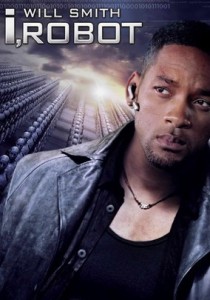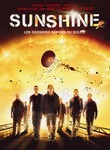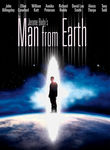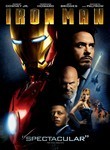Some movie reviews
May 26th, 2018
These are cut-and-pasted from Netflix. With very rare exceptions, I only write reviews for movies I disliked – it’s my way of getting revenge.
There are no spoilers here. All ratings are in the range 1 to 5 stars.
[Edit: I see that 12/14 of the reviews below use the word “stupid”. I suppose that says something not terribly flattering about myself. So be it. It’s still how I feel about these films.]
Things to Come
The Gestapo will save us from war, hatred, and irrationality and create a paradise of identically black-suited heroes who rule and identically white-gowned citizens who obey, all living in a futuristic world with lots of pneumatic tubes. Underground. And they will have television. But, of course the Gestapo (or is it Stasi? Or Checka? hard to tell) rule in the name of Humanity, so it’s all good. But they don’t approve of private airplanes. H.G. Wells personally oversaw every detail of this film. It supposedly represents his vision of an ideal (!) future world. (He supported something he called “liberal fascism”, and it shows.) Acting is high school play quality. (On the low end of that.) Special effects were good for 1938. I give it 2 stars, both for historical interest. The film isn’t worth watching aside from that.
Sunshine
I used to think Gravity was the worst recent science-fiction film. No longer. Gravity was stupid, terrible, and stupid (with great special effects and pretty good acting). But Sunshine is bad on a whole different level. It has *layers* of stupid, each dumber than the next. Layers upon layers of stupid. It’s really an amazing achivement. But not amazing enough to make it worth watching. It’s not “fun stupid” like Plan 9 From Outer Space. It’s just…. well, don’t watch it.
Interstellar
The stupid – it hurts. Physicist Kip Thorne was involved with the scriptwriting. Thanks to him the part about wormholes isn’t stupid. Just the other 99% of the movie is stupid. If you know anything at all about engineering or physics, that is. I won’t give spoilers, but please note it’s difficult to hide the launch of a Saturn V-sized rocket. And the vicinity of black holes tend to have LOTS of x-rays. Not a place you’d want to (or be able to) live. Plus, a little 1930s-style dust bowl is no reason to abandon an entire populated planet. See astronomer Phil Plait’s comments at Slate.
The Man from Earth
Some interest. Others have done it better in written science-fiction. The Mel Brooks/Carl Reiner version (2000 Year Old Man) is much funnier. This movie is all talking-heads (it cost $200,000 to make). And the characters are cardboard cut-outs, very poorly written. But some interesting ideas.
You wrote this on Sat Jan 06 15:36:05 GMT 2018
Mr. Nobody
There’s a solid 25 or 30 minutes of entertainment lurking in this 2 1/2 hour movie. It’s slow. Really slow. The filmmakers even showed they know it – there’s a line in the film “it’s like a French movie – nothing happens”. Synopsis (no spoilers): Choices have consequences. I think most people already knew that, but the film assumes that it’s a mind-blowing concept.
You wrote this on Sun Jul 02 22:27:40 GMT 2017
Argo
Intrinsically an interesting true story, but way too Hollywood for my taste. As others have mentioned, the film inaccurately minimized the Canadian role, and positively insults the heroism of the British and New Zealand embassy staff (for no conceivable reason). Worse for my enjoyment of the film was the obviously made up last-second hitches inserted by the filmmakers. Without spoiling, there are two huge omg-we’re-almost-there-BUT moments, inserted by the filmmakers for suspense. Plus a lot of smaller ones. But this is a true story. These have no basis in history, and are such obvious Hollywood tropes as to break my belief that I was watching something real. It’s like when James Bond defuses the bomb with 1 second left on the clock. You know you’re watching a scriptwriter’s cheap trick, not something that happens in real life.
Gravity
I just watched it. I’m still stunned. Stunned by the utter stupidity of this movie. From the very first minute this movie is idiocy after idiocy. Read the other reviews for some of them, but I could write a book about everything wrong – with physics, with technology, with psychology, with common sense – in this movie. Just in the first 5 minutes (no spoilers): 1) She’s a MEDICAL doctor, yet she’s there to work on an upgrade of the Hubble telescope. Huh? 2) She says she’s nauseous – while in a spacesuit. Does she immediately go inside and take off the suit? Does she have ANY IDEA what will happen if her stomach goes while wearing a space helmet? (Answer: She will choke to death on her own upchuck, while totally blinded as it coats the inside of her helmet.) 3) The stars are visible IN THE DAYTIME. Clooney is DOING CIRCLES (==burning fuel like crazy – he should be out in 90 seconds at that rate) around the shuttle in a jetpack at a speed that would kill him instantly if he hit anything. 4) People describe things being at “7 o’clock” while floating IN OUTER SPACE (so the clock doesn’t even have an up and down, let alone facing in any particular direction) 5) People are asked to “describe their position” while floating in F***ING ORBIT! (What the heck are they supposed to say… “I’m 100 feet south of the tree?!?!?”) 6) She’s a NASA astronaut, but she “crashed” Soyuz in the simulator EVERY TIME. But they still let her fly. And that’s just in the first 5 minutes. It goes on just like that for an hour and a half. My head is still spinning. WHY does Hollywood do this? This movie had a huge budget and A-list stars. How much extra could it POSSIBLY cost to hire a scriptwriter smarter than Bozo the Clown?
You wrote this on Sun Jun 08 03:57:50 GMT 2014
The Hunger Games
Too much killing of innocents. Not enough revolution. “When the people fear their government, there is tyranny; when the government fears the people, there is liberty.” Thomas Jefferson
You wrote this on Sun Nov 25 04:00:40 GMT 2012
Babel
A rather long slow movie about people doing amazingly stupid things and suffering for it. Visually interesting, the characters are hard to sympathize with because they act so stupidly. I found myself feeling they deserved worse than they got.
You wrote this on Wed Feb 15 14:50:33 GMT 2012
3:10 to Yuma
It’s hard to measure these things accurately, but this may be the stupidest movie I’ve ever seen in my life.
You wrote this on Sat Nov 05 10:05:12 GMT 2011
Passenger 57
Too stupid for words. A good choice for MST 3K movie night. Watch for the big fight scene where everyone on the plane needs oxygen masks to stay conscious except, of course, for the guys fighting.
Moon
Stupid movie. First – the premise. An astronaut takes a 3-year stint, all alone, on the far side of the moon mining He-3. 3 years? All alone? Only a crazy person would do that – and it’s hardly a job for crazies. So the premise is unreasonable to start with. Next, part of the plot turns on having no direct communications with Earth, except via relay thru Jupiter (so no real-time comms). Supposedly the comsat is broken. Yet the base is just a short drive from nearside, where the astronaut can easily make phone calls to Earth. Come on – so close to nearside yet there’s no wire to an antenna there? Second, the science/special effects. When he does talk to Earth, there’s no delay. There is low-gravity outside the base, but inside the base it’s just normal Earth 1-G. And bright lights outside give visible beams in the “hazy air”. On the moon? In a vacuum? It was so un-moonlike that, at one point in the movie, the main character is exploring outside the base, and makes a “discovery”. I thought the “discovery” was going to be that HE’S NOT ON THE MOON AT ALL. (But he is; I haven’t spoiled it.) I love good hard SF, and while this film borrows heavily from 2001 and other classics, it is not in that league.
You wrote this on Sun Jun 13 03:01:41 GMT 2010
Iron Man
Stooopid. Plot is weak and very, very predictable. But the “technology” just violates way too many physical laws in far too obvious ways for me to suspend disbelief. And I’m a SF fan! If you liked the comic book, maybe you’ll like this. As an engineer, the whole idea of a “super-suit” just strikes me as ridiculous. Are tanks built in the shape of giant armed men? Hardly. Then there’s the rockets with no need for reaction mass, and people getting smashed into things at hundreds of miles per hour with no injury (suit or not, the human body is only so strong). The special effects were good. And the focus was sharp.
[Added 2018: I liked some of the later ones better.]
You wrote this on Sun May 02 03:00:39 GMT 2010
Spider-Man 3
I liked the first two Spiderman movies. This one was just too stupid to bear, from beginning to end. By halfway into the movie, it had become a MST 3000 session with everyone in my family making jokes about how idiotic this movie was. Even my 6 year old thought it was full of cliches. (He did like it, tho.)
Movie review – I, Robot
January 10th, 2015
 [Yes, the 2004 version; I just saw it.]
[Yes, the 2004 version; I just saw it.]
For decades, movies about humans vs. aliens or humans vs. robots were thinly veiled parables about racism, xenophobia, loving thy neighbor, etc.
Especially so if one of the main characters is black.
No spoilers here, but at the start of this movie Will Smith’s character hates robots. Hates them for no obvious reason.
But this movie is not about racism or foreigners, or anything even vaguely like that. It is actually about robots.
By the end of the movie, Smith no longer hates robots. But not because he’s learned to be a better person. Oh, no, that is not the reason at all. Because this movie is not about that – it’s about intelligent machines.
I won’t say more – see it. But this movie rejects many standard Hollywood tropes and comes up with something genuinely fresh. And it shows that at least some people in Hollywood (Will Smith, anyway – who is also a co-producer) are able to make movies – even starring black people – about things other than racism. Imagine that!
And it has some important things to say about robots – things that may not occur to you until the next day after you see it.
It’s not an Asimov story – it just takes his robot stories as background. But I think Asimov would have liked it (so will Nick Bostrom).
It’s not a perfect movie, so one star off for that. But see it. 4/5 stars.
Reshaping DNA
May 30th, 2012
Power laws
December 19th, 2009
There’s a story on Slashdot today about “a complicated pattern that has to do with the way humans do violence in some collective way“.
Surprise. The size and frequency of terrorist attacks follows a power law – lots of little attacks, a few big ones.
What doesn’t? Quoting from http://en.wikipedia.org/wiki/Pareto_distribution:
The sizes of human settlements (few cities, many hamlets/villages) File size distribution of Internet traffic which uses the TCP protocol (many smaller files, few larger ones) Clusters of Bose-Einstein condensate near absolute zero The values of oil reserves in oil fields (a few large fields, many small fields) The length distribution in jobs assigned supercomputers (a few large ones, many small ones) The standardized price returns on individual stocks Sizes of sand particles Sizes of meteorites Numbers of species per genus (There is subjectivity involved: The tendency to divide a genus into two or more increases with the number of species in it) Areas burnt in forest fires Severity of large casualty losses for certain lines of business such as general liability, commercial auto, and workers compensation.
I could add a bunch more, but won’t bother.
Why is this considered news? Why does it get published in Nature? If terrorist activity didn’t follow a power law, I think that would be interesting enough to merit publication in a prestigious journal. But this?
Is it just me, or is the quality of editorial work in science journals dropping? I constantly see papers in Science and Nature that make the most basic scientific mistake possible – confusing correlation with causality. And then the “quality” press such as the New York Times and the Economist pick it up and repeat the same nonsense.
See also:
Business cycles and forest fires
May 4th, 2009
Letter to The Economist sent 2009-05-03. I’m guessing they won’t print it – it’s too far from the mainstream. (Also, my Hayekian slant is showing; few people get it.) We’ll see.
Update May 25 – I was wrong. They printed it in the May 14 issue, with some unfortunate editing.
Dear Sir:
You say (Briefing – Central Banks, 25 April) “The business cycle was supposedly subdued, yet the world is in the deepest recession since the 1930s.”
Indeed. Perhaps there is a connection.
For many decades, forest fires were suppressed by well-meaning officials. Fuel was allowed to build up, eventually resulting in far more devastating fires than would have occurred naturally. Today we allow fires to serve their necessary functions, while making efforts to limit damage to people and property.
I suspect the business cycle, and attempts to subdue it, are much the same – deadwood must be cleared out, inefficient practices curbed. The economy, like an ecology, is far more complex than we can comprehend; attempts to control it are more than likely to produce unintended results.
Why journalism is so bad
October 27th, 2008
A friend forwarded me Orson Scott Card’s recent essay Would the Last Honest Reporter Please Turn On the Lights?, in which Card complains about journalistic bias (in this case, concerning the causes of the mortgage loan crisis).
Card writes:
If you had any personal honor, each reporter and editor would be insisting on telling the truth — even if it hurts the election chances of your favorite candidate.
Because that’s what honorable people do. Honest people tell the truth even when they don’t like the probable consequences. That’s what honesty means. That’s how trust is earned.
Card is a great science fiction writer (if you haven’t heard of him, go read Ender’s Game), but oddly, he seems to expect journalists to care about the truth.
I’m guessing he didn’t study journalism in school.
Professional journalists are trained to worry about “fairness”, not truth. Reality, they are told, is socially constructed, and there is no such thing as objective truth.
Fairness means reporting “both sides” of a story even when there are 3 or 4 sides, or when it’s obvious who is lying and who isn’t.
If journalists were interested in truth, they wouldn’t pretend to be impartial (they’re human, of course they have opinions of their own). Instead they’d openly admit their viewpoint and let the reader judge their arguments.
There are still countless newspapers in the US with “Republican” or “Democrat” in their title. I suspect the relatively high esteem which journalists enjoy is a legacy from the era when these newspapers were founded.
Before the rise of “professional” journalism in the middle of the 20th century, truth was assumed to exist (even if it was difficult to find), and publishers were proud to announce their political allegiance.
Two million minutes & media-inspired panic
February 25th, 2008
Today NPR, that bastion of reasoned, intelligent and thoughtful reporting (as opposed to the crass celebrity-and-sensation commercial outlets) ran a typically panicky story about the documentary “Two Million Minutes”.
According to NPR, the film illustrates the looming downfall of American society as children in developing countries study and learn vastly more in school than their US counterparts. As a result, the next generation of Americans will be illiterate, innumerate, and utterly ignorant of science, history and geography. The sky will fall and Americans will be reduced to foot-washers and burger-cookers to Asian technocrats.
Two points.
First, economics is not a zero sum game. Other countries becoming more productive – even more productive than Americans are – does not hurt the US standard of living.
While it’s certainly true that American primary and secondary schools are pitiful (because they lack competition – compare America’s excellent, and highly competitive, colleges and universities), still, panic is not called for. Productivity determines living standards – nothing else. Americans are becoming more productive, not less, even if other countries are catching up.
Economics is not war. There are no “winners” and “losers” – everyone gets what they produce, be it great or small, and regardless of what others get.
It’s natural that countries like China and India, which still experience poverty that makes even the poorest Americans appear middle-class, are struggling very hard to improve their standard of living; much harder than Americans do or need to. This is admirable, but eventually when these countries catch up to first-world living standards undoubtedly they, too, will start taking some time to smell the flowers.
Second – education only goes so far. The brightest people will always be able to learn what they need to know without much effort, and the dumbest, sadly, will not be able to learn much no matter what effort is put into education. All nations have their share of genius and idiocy.














